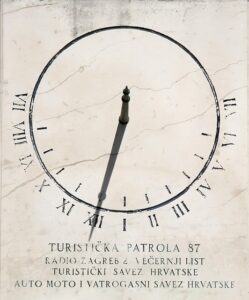Preserving Authorial Voice: Strategies for Accurate UK Short Stories Translation
Translating UK short stories requires a delicate balance between cultural adaptation and preserving the author's artistic vision. Professional services navigate linguistic challenges by delving into cultural contexts, understanding idioms, and m…….

Translating UK short stories requires a delicate balance between cultural adaptation and preserving the author's artistic vision. Professional services navigate linguistic challenges by delving into cultural contexts, understanding idioms, and maintaining narrative flow. Skilled translators use strategies like paraphrasing to ensure accessibility while capturing the author's distinct voice. Collaboration with literary professionals and rigorous research are key to delivering high-quality translations that resonate globally. Ethical considerations guide adaptations, ensuring transparency and respect for both author and reader. Combining advanced technology and human expertise ensures UK short stories maintain their authentic charm, captivating international audiences.
In the realm of literary translation, capturing an author’s unique voice is an art. This article explores the intricacies of preserving the essence of UK short stories across languages, focusing on successful translation strategies. From understanding cultural nuances to leveraging linguist expertise, we delve into techniques that ensure a consistent and authentic voice transfer. Discover the ethical considerations and future trends shaping this field, along with valuable resources for top-tier UK Short Stories Translation Services.
- Understanding Author's Voice: The Essence of Successful Translation
- UK Short Stories Translation: Navigating Cultural Nuances
- Capturing Tone and Style: Techniques for Consistent Voice Transfer
- Role of Linguists in Preserving Authorial Intent
- Machine Translation vs. Human Interpretation: Which Captures Voice Better?
- Building a Strong Literary Translation Team
- Case Studies: Successful UK Short Stories Translations
- Ethical Considerations in Author's Voice Translation
- Future Trends in Ensuring Author Voice Across Languages
- Resources and Tools for Accurate UK Short Stories Translation Services
Understanding Author's Voice: The Essence of Successful Translation

Understanding an author’s voice is paramount in successful translation, especially for UK short stories. It involves capturing not just the words but also the unique style, tone, and intent behind each phrase. A skilled translator must become an intermediary, conveying the author’s message while adapting it to another language and cultural context. This delicate balance ensures that the essence of the original story—its emotional impact, literary devices, and narrative flow—remains intact for readers in a different linguistic landscape.
In UK short stories translation services, this means delving into the subtleties of language, idioms, and cultural references specific to the author’s background. Translators must be adept at interpreting these elements while staying faithful to the source text. They play a crucial role in preserving the author’s artistic vision, ensuring that readers experience the story as intended, regardless of their native tongue.
UK Short Stories Translation: Navigating Cultural Nuances

Translation is an art, and when it comes to capturing an author’s voice in a different language, especially for UK short stories, the challenge intensifies. Professional translation services understand that words carry cultural nuances, and their task is to navigate these subtleties to preserve the essence of the original work.
UK short stories often reflect specific cultural references, humor, and idiomatic expressions unique to British literature. A skilled translator must interpret these elements while adapting them to the target language, ensuring the story’s authenticity and appeal remain intact. This meticulous process involves researching cultural contexts, exploring equivalent expressions, and sometimes even rephrasing to convey the intended tone and meaning accurately.
Capturing Tone and Style: Techniques for Consistent Voice Transfer

Capturing an author’s voice in translation is a delicate art, especially for UK short stories where tone and style play a vital role in conveying meaning and emotion. Translators must navigate the challenges of adapting linguistic nuances while preserving the original intent. One effective technique involves a deep dive into cultural contexts, ensuring the translated text resonates with readers from different backgrounds. This process includes understanding idiomatic expressions and literary devices unique to the source language.
Additionally, maintaining consistency requires keeping an eye on sentence structure and rhythm. UK short stories often employ compact yet powerful phrases that can be tricky to translate word-for-word. Translators must be adept at paraphrasing while preserving the essence of the author’s style. Collaborating with literary experts or even the original author (if accessible) can further refine the translation, ensuring the captured voice remains true to the source material and appeals to a broader audience.
Role of Linguists in Preserving Authorial Intent

The role of linguists in preserving authorial intent is paramount, especially in the realm of UK short stories translation services. These experts possess a deep understanding of both source and target languages, enabling them to capture the nuances and subtleties that might be lost in transit. By delving into the author’s perspective, cultural context, and intended meaning, linguists ensure that the translated work resonates with readers while staying true to the original vision.
In the case of UK short stories translation services, linguists not only translate words but also navigate the intricate labyrinth of idioms, metaphors, and literary devices that give a text its unique character. They employ various techniques, such as using equivalent expressions or creative adaptations, to convey the author’s voice accurately. This meticulous process demands a keen eye for detail and a profound appreciation for both languages involved, ultimately preserving the integrity of the original work.
Machine Translation vs. Human Interpretation: Which Captures Voice Better?

In today’s globalized world, the demand for accurate and nuanced translations has skyrocketed, particularly in the realm of literature. When it comes to capturing an author’s voice in translation, there’s a longstanding debate between machine translation (MT) tools and human interpreters. Machine Translation, popularized by UK short stories translation services, offers speed and accessibility, instantly providing text in multiple languages. However, its limitations are stark when it comes to preserving the author’s intended tone, idiomatic expressions, and literary nuances.
Human interpretation, on the other hand, allows for a deeper understanding of cultural contexts and stylistic choices unique to each author. Professional translators, like those offered by UK short stories translation services, can meticulously capture subtle meanings and artistic decisions, ensuring that the translated work resonates with readers as the original did. While human interpretation may take more time, it guarantees a higher level of fidelity to the source text, making it the preferred choice for preserving literary voices across languages.
Building a Strong Literary Translation Team

Building a strong literary translation team is essential for delivering accurate and compelling UK short stories translation services. The process begins with identifying translators who possess not only linguistic proficiency but also a deep appreciation for literature and culture. Look for individuals with experience in translating similar genres, as this ensures a better grasp of the author’s intended tone and style.
In addition to skilled translators, consider assembling a team that includes editors and proofreaders with a strong background in literary translation. Their expertise can help refine the translated text, ensuring it maintains the essence of the original work. Collaboration among these professionals fosters a cohesive approach, ultimately producing high-quality translations that capture the author’s voice.
Case Studies: Successful UK Short Stories Translations

In the realm of literature, the art of translation plays a pivotal role in connecting diverse cultures and languages. When it comes to UK short stories, achieving an accurate and authentic representation of the author’s voice is a delicate task. Case studies of successful translations highlight the importance of not merely exchanging words but capturing the essence and nuances that make a story captivating. Professional UK Short Stories Translation Services often employ native speakers with a deep understanding of both languages and cultural contexts, ensuring the translated work resonates with readers as the original did.
These services delve into the intricate details, from idiomatic expressions to subtle emotional undertones, to preserve the author’s intent. By navigating the challenges of translating literary works, these experts foster a global tapestry where stories from one culture can dance alongside those from another, enriching literature’s vast landscape. Thus, successful case studies serve as a testament to the power of skilled translation in bringing UK short stories to international audiences.
Ethical Considerations in Author's Voice Translation

When translating UK short stories or any literary work, preserving the author’s voice is paramount. However, this goal often clashes with ethical considerations. Translators must decide on the level of adaptation allowed by the target culture and language while respecting the original intent and style of the author. For instance, idioms and cultural references might not have direct equivalents, requiring translators to balance literal translation with creative interpretation to maintain the essence of the narrative.
Additionally, UK short stories often explore nuanced themes and emotions that can be challenging to convey accurately in another language. Translators must navigate these subtleties, avoiding over-simplification or misrepresentations that could alter the story’s impact. Ethical guidelines for author’s voice translation emphasize transparency, ensuring readers understand the extent of adaptation while still recognizing the translator’s role in making the work accessible and engaging in new cultural contexts.
Future Trends in Ensuring Author Voice Across Languages

The future of translation services, particularly for UK short stories, lies in advanced technology and a deep understanding of author intent. Artificial intelligence (AI) is set to play a significant role, with machine learning algorithms capable of analyzing vast amounts of text to capture the unique style and tone of an author’s writing. This technology can then adapt translations to reflect the original voice, ensuring that the essence of the story remains intact across languages.
Additionally, human translators skilled in literary translation will remain invaluable. They bring cultural sensitivity and a keen eye for detail, working alongside AI tools to refine and polish translations. The collaboration between technology and expertise will enable UK short stories to find their authentic voice on the global stage, captivating audiences worldwide with their unique literary flair.
Resources and Tools for Accurate UK Short Stories Translation Services

When it comes to translating UK short stories, having the right resources and tools is paramount for accuracy. Online platforms like Google Translate might offer quick solutions, but they often struggle with nuances in language, idiom, and cultural references. Professional translators are equipped with specialized dictionaries, style guides, and literary analysis tools tailored for fiction translation. They also draw on their own linguistic expertise and creative thinking to capture the author’s intended tone, themes, and even that subtle “je ne sais quoi” that makes a story truly come alive.
For UK short stories in particular, it’s beneficial to leverage translation software designed with English literature in mind. These tools often include options for literary terms, formal registers, and cultural context, enabling translators to produce work that resonates authentically with British readers. Moreover, leveraging expert human reviewers can significantly enhance the quality of translations by ensuring accuracy, readability, and cultural adaptability.
In the realm of UK short stories translation, capturing the author’s unique voice is an art that combines cultural sensitivity, linguistic expertise, and a deep understanding of narrative style. As we’ve explored, successful translations go beyond simple word substitution, delving into tone, idiom, and cultural nuances to preserve the original intent. With advancements in technology and the growing demand for high-quality literary translation services, UK short stories are finding their voice across languages. By fostering collaborations between authors, translators, and linguists, and embracing ethical considerations, we can ensure that the essence of these captivating tales resonates authentically in every corner of the globe, enriching global literature with diverse perspectives. For readers worldwide, this means an opportunity to experience the vibrancy of UK storytelling, unfiltered and undiluted, through translation services that truly capture the author’s voice.






